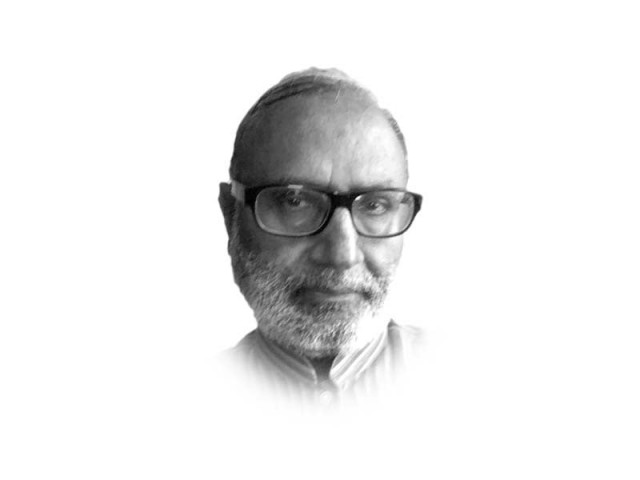Budget speeches FY1949/2023
The first budget speech related to FY49 resonates considerably with the FY2023 speech

As Pakistan became independent in the fifth month of FY48 (April-March), the first budget speech related to FY49. It resonates considerably with the FY2023 speech, except for the deficit.
FY23: “[W]e are facing the challenge of putting a wrecked economy back on track … Last Government has been taking revenge from Pakistan and its people continuously.” It took “80% of the total debt taken since the times of Liaqat Ali.”
FY49: The “mass exodus of population was organised in order to shatter from its very birth the existence of Pakistan and dislocate, disrupt and cripple its economic life. … The problem of absorbing about six million people in the economic life of Western Pakistan is indeed a gigantic one.”
FY23: The government “believes that maximum relief should be given to the people during these hard times … Government has taken many steps for providing assistance and subsidies in this respect but in order to continue it we will have to provide resources. For the purpose there can be a special tax on higher income earnings to redirect the wealth towards poor people, so tax can be imposed on such income or on articles which are used mostly by affluent people and are used less by middle class or poor people. In this way higher income people will have to face a nominal burden. Thus the rich can provide much relief to the poor.”
FY49: “In view of the figures which I have already given, the House will appreciate that I am not in a position to surrender any large amount of revenue or to offer any general relief to the taxpayer.”
FY23: Debt servicing will be Rs3,144 billion followed by defence expenditure of Rs1,450 billion and subsidies of Rs1,515 billion.
FY49: Defence was the largest head of expenditure. “[C]ommensurate with its financial resources Pakistan has to bear a disproportionately heavy burden of defence expenditure….Pakistan, as the custodian of the historic passes on its north-west frontier, has to bear the heavy responsibility of maintaining proper defence arrangements on a long frontier and has to shoulder a heavy financial burden connected with the tribal areas, all this is in the interest of the whole of the subcontinent.”
FY23: “The budget philosophy of our government is to increase agricultural productivity so that not only cultivated land increases but per acre yield also increases. … Agriculture is the backbone of our country’s economy…On the other hand, we will develop industries which products can be exported. In this way we will have valuable foreign exchange and it will help to correct the balance of external payments on durable basis.”
FY49: “Our future lies in tapping the vast natural resources of Pakistan which are simply awaiting to be harnessed…Pakistan is at present mainly an agricultural country, and in rapid industrial development lies our chief hope of increased prosperity and a high standard of living for the people.”
FY23: “Despite having the lowest population, comparatively the largest allocation is being spent on Balochistan’s development so that the province can be brought at par with other parts of the country.”
FY48: “Baluchistan remained particularly neglected and deserves our special attention. Provision has been made for financing some of the productive works necessary for development and in so far as it lies within our means all possible facilities will be afforded to Baluchistan for her welfare.”
FY23: Fiscal deficit of “8.6 percent of GDP during the current fiscal year will be decreased gradually.”
FY49: The deficit of current year was turned into “a surplus of Rs 5 lakhs for 1948-49.”
Published in The Express Tribune, August 12th, 2022.
Like Opinion & Editorial on Facebook, follow @ETOpEd on Twitter to receive all updates on all our daily pieces.















COMMENTS
Comments are moderated and generally will be posted if they are on-topic and not abusive.
For more information, please see our Comments FAQ